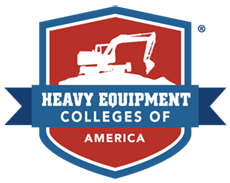When it comes to Covid-19, there’s no shortage of information about how the virus impacts different parts of the economy, especially essential workers. Less examined are the ways in which the coronavirus impacts the situation of construction workers who rely upon the growing economy for the sake of their own livelihoods and the sustenance of their dependents.
In this light, there is also relatively scant commentary about how the broader construction industry has been impacted by Covid. Simply put, because construction is such a foundational aspect of the international economy, concerns about Covid are always easy to read into construction industry trends — but the significance of these facts is sometimes detached from their practical value.
With this in mind, if you are a construction worker or even tangentially associated with the construction industry, it’s important to know how you can protect yourself and slow the spread of Covid. The following article explains what construction workers need to know about the Covid 19 pandemic as well as some broader trends taking shape in the sector.
If you work in the construction industry, there are a wide range of potential sources of exposure to Covid 19 — but the biggest concern to whether you come in contact with someone who has is unknowingly carrying the novel coronavirus. There are different things that are important to know depending on your role within the construction industry, but ultimately the CDC guidelines will provide the most up-to-date information on how to reduce the risk of exposure.
Due to the personal nature of construction jobs, the most common form of Covid 19 exposure is close contact with coworkers, whether that’s in the office or the construction site. In short, because Covid 19 can be spread by asymptomatic patients for up to two weeks prior to the virus’s onset, anyone working in close proximity with others is at an increased risk of exposure.
Because the virus is transmitted in an airborne manner, if you are in contact with anyone who has Covid-19—even if they don’t know it—and then you touch your nose, mouth or eyes, then you dramatically increase your risk of contracting the disease.
In order to reduce this risk, remember to take the following steps:
– Alert your supervisor and refrain from working if you have symptoms
– Follow the CDC-recommended steps if you are sick
– Do not return to work until you have self-isolated for at least two weeks
– Follow the CDC-recommended precautions for staying safe during the coronavirus
With these basic guidelines established, it’s worth considering how the spread of the virus is impacting the construction business more broadly. This knowledge helps construction workers understand the nuances of the pandemic’s impacts and importance of staying safe as a professional obligation.
A number of trends are beginning to take shape as land owners, real estate developers, contractors, and supply chain vendors all adapt their business practices to address long- and short-term needs. While many of these are too early to fully understand the implications of, there are some general trends worth summarizing for the moment.
The nature of Covid’s impacts and extent of its ramifications are mainly dependent upon the location of the respective business, its location, and the underlying project. The most direct impacts of the pandemic have been simple slowdowns of labor and available goods. In other cases, the changing winds of the economy have led to suspensions and even terminations of parties or entire projects. In almost every case, the fluctuating nature of construction activities is dependent upon states and cities — the key question is whether governing officials deem construction an essential business.
Of course, that’s only one question. It’s important to be clear that in this new operating environment, we are only seeing the very beginning of countless impacts on the broader industry. Government restrictions, supply chain alterations and worker safety protocols have been and will continue to be introduced across the country in the weeks and months ahead.
Final Thoughts to Keep In Mind
At the end of the day, there is little can be truly known about what the future holds for the construction sector — but what we can say for sure is that like always, is imperative for workers to take responsibility for their own health and safety on the job. New OSHA regulations can only go so far; the more people who are able to take proactive steps to keeping themselves and their coworkers safe, the sooner we can all recover.
Because the primary factor in the pandemic is a biological virus, Covid-19 situation itself is constantly evolving. According to some new research, the virus is mutating — in time, it could further outpace vaccine research and become risker (and deadlier) than currently considered. The best things you can do are to avoid attending public gatherings without a face mask, to wash your hands regularly, and to avoid touching your face in public.
Visit HEC website for more details about available Heavy Equipment Training Programs.




